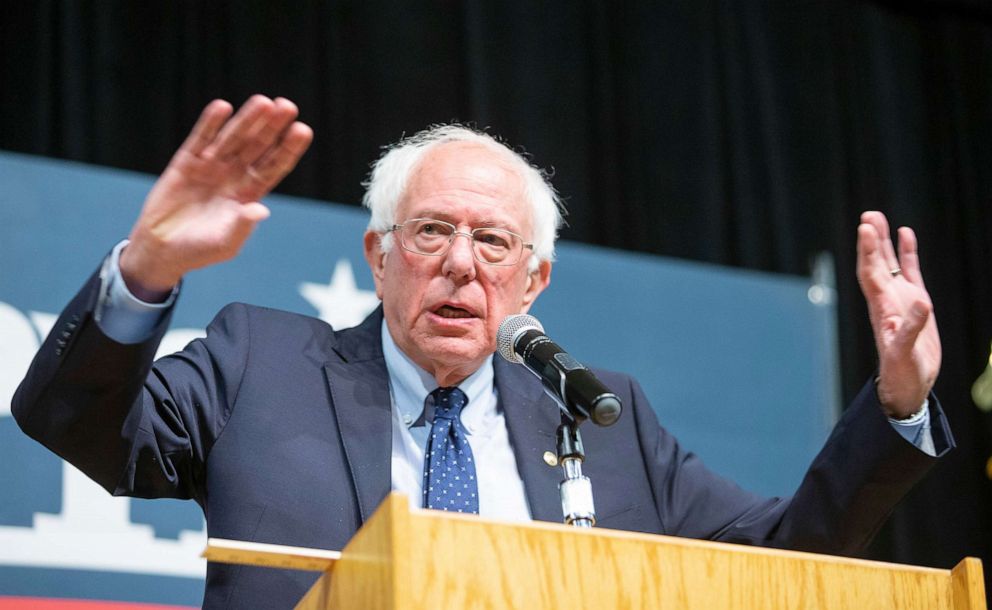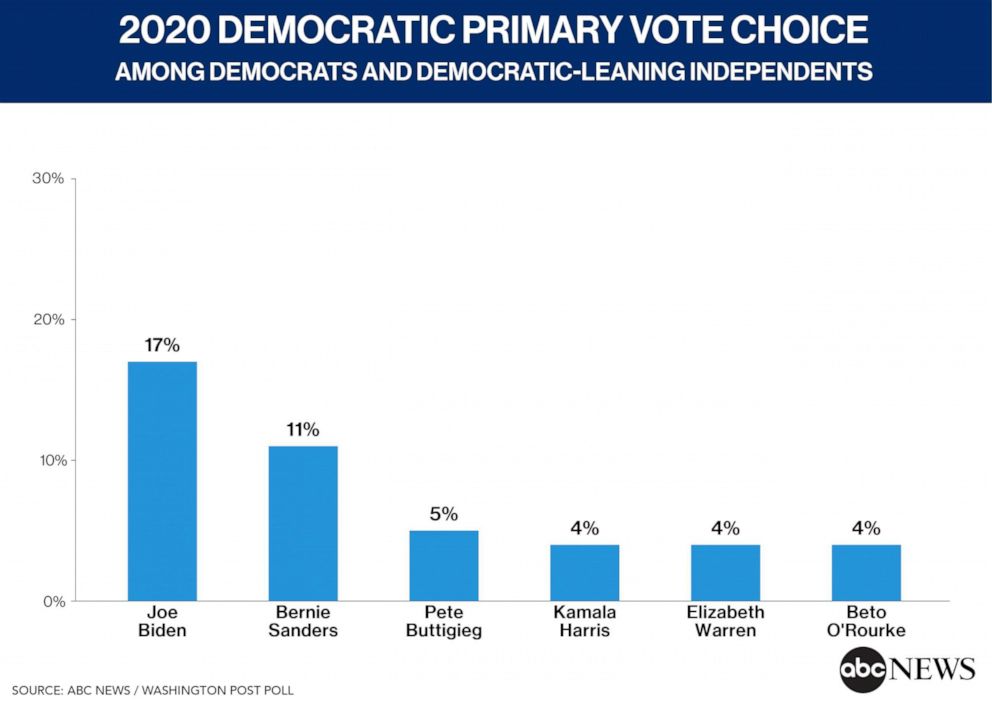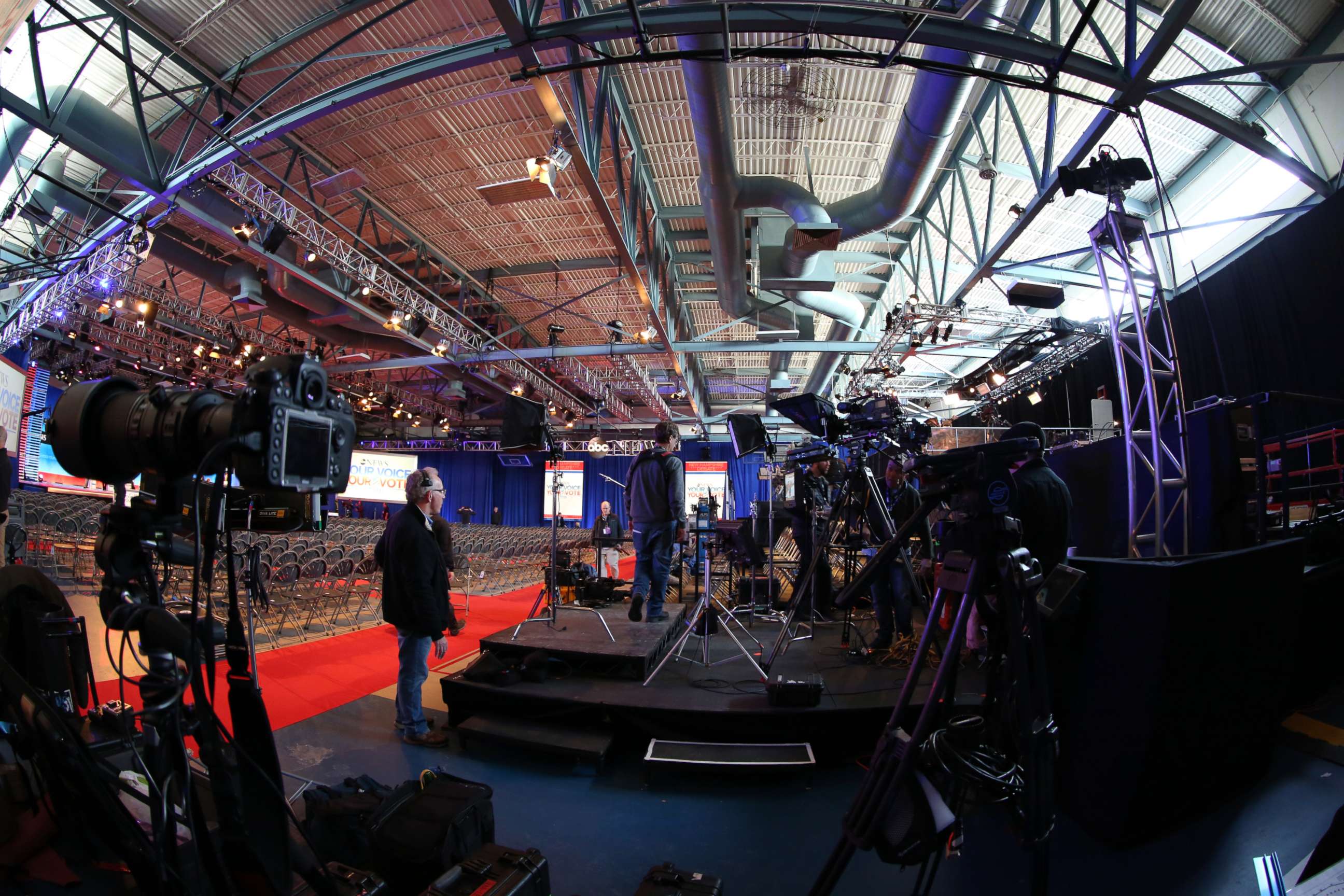California crashes the party this 2020 cycle: ANALYSIS
The largest state in the union wants to be seen and heard.
After voters and elected officials in California, the largest state in the union and one of the bluest, four years ago felt relegated to the end of the primary calendar and the political shadows, the Golden State demanded it would shine come 2020.
Fast foward and, during this cycle, early voting in the state will start the same day as the Iowa Caucus. The state also moved its primary from June to March 3 making it one of more than 15 states to vote on “Super Tuesday.”This year more than 35% of the total Democratic delegates will be up for grabs on that one day alone.
Supporters of the new date say it will attract candidates -- of which three of the 23 Democratic presidential contenders hail from the West Coast powerhouse -- to the state to campaign.
This weekend, more than a dozen presidential candidates are flocking to San Francisco to make their case in front of California State Party delegates at their state convention.
“Californians want their voice to be heard, not just the outcome of the November election, but the outcome of the primary,” Alex Padilla, California’s Secretary of State told ABC News over the phone Friday.
“Historically, California has usually been one of the last states in the presidential primary calendar. And by the time Californians has gone to the polls to vote in the primary, the nominees for president of all major parties has been pretty much decided, rendering Californians’ votes in the primary essentially meaningless,” Padilla continued.

In 2016, both the Democratic and Republican primary contests were largely decided by the time June rolled around.
Sen. Bernie Sanders, who was trailing significantly in the delegate race, made a point of campaigning throughout California anyway. At the time, he said all states and all voters should get to have their say.
The night before Californians took to the polls though, he was about to take the stage in front of several thousand people at an event in San Francisco, when the Associated Press reported that Secretary of State Hillary Clinton had secured enough delegates to become the presumptive Democratic nominee.
“Hindsight is 2020,” Republican and former California GOP Party Chair Jim Brulte told ABC news, recounting how he had voted in the past to move the state’s primary up earlier.
“We’re a very important state and if you want to have a role, you’ve got to be able to participate. And California has not been determinant most of the time…the Republican race was over in 2016 long before Donald Trump, you know, carried California.”
California, with its 39.5 million people and high concentration of Democrats is expected to have more than 400 pledged delegates available for the taking in the Democratic presidential primary, out of the roughly 3700 in total to be awarded proportionally by the percentage of the votes a candidate wins in districts and states.
This fact, coupled with the number of other states that have also moved up their dates too, could mean the primary contest is wrapped up earlier than in years past.

“California has always kind of been a state where most candidates for president always come because they have always thought of it as an ATM in that regard,” Mark Gonzalez chairman of Los Angeles Democratic Primary said in an interview. Gonzalez said he hopes that will be different this year.
“I think about that old saying, ‘As California goes, the rest of the nation goes,’ and I think that’s the kind of play we wanted to do,” he added.
Not everyone is convinced the calendar move will have a profound change.
“I think it's such inside baseball that when it's all said and done, I don't think it matters in the final outcome,” Don Perata, the former president pro-tempore of the California State Senate, told ABC News. Perata also said California’s larger footprint on the early part of the calendar could push the party to the left even more.
“And would not do the Democratic Party much good nationally. You know, we people in California, tend not to believe this, but a lot of people in the rest of the country just flat out don't like us,” he said.
Others argue the state's racial and ethnic diversity make it representative. More than one in eight Americans live in California.

In addition to the revised calendar, the entire Democratic primary nominating process is widely different this year.
In 2016, automatic delegates, including Democratic elected official and parry representatives, also known as “super delegates,” had a vote on the first round. Clinton secured hundreds of these delegates before most primary voting began and the AP called the race in her favor on the eve of California voting, based on conversations with these super delegates.
Sanders’ former campaign manager, Jeff Weaver, described such calls as “incredibly harmful,” but also acknowledged that moving California up in the calendar could benefit candidates who already have national name recognition, and, in theory, significantly disadvantage lesser-known candidates who are still trying to get their message out.
California also has extremely expensive television markets for advertising, and with its 900 miles of coastline, farmland and mountains, can make retail, in-person, meet-and-greet politicking nearly impossible.
“California is expensive and when it was later, a lesser-known candidate had an ability to establish himself or herself in less expensive states,” Weaver said over the phone.
It’s a point Brulte discussed too, still, in his view, it beats the alternative.
“As opposed to having a state that [is] almost lily-white, having a disproportional impact and disadvantaging Texas and Florida and California and New York...I just think there's a benefit to California by having an earlier primary.”



